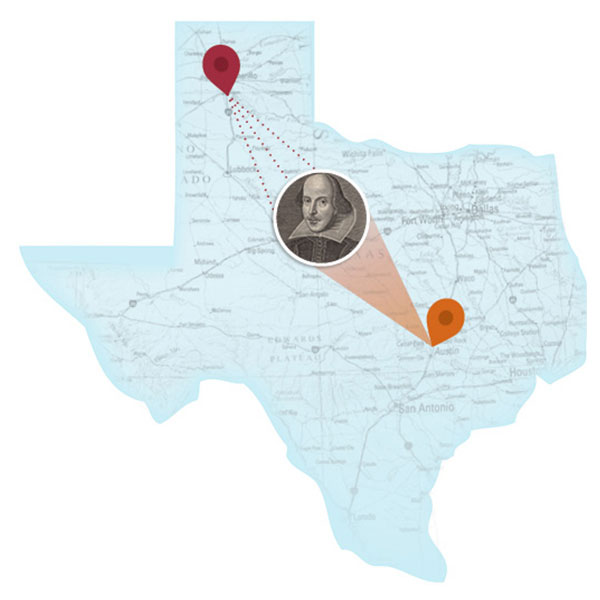
“What do the books smell like?” asked one of my students. In my Shakespeare class at West Texas A&M University, we must use the internet as our rare book room. Our institution could never afford the kinds of specialized resources we use every week online: my students can easily flip through digitized Shakespeare quartos, see performance clips and stills, and trawl through databases of historical records.
The digitization efforts of libraries like the Harry Ransom Center let my students immerse themselves in rare material. But, as my student’s surprising question made me realize, the challenge of so much internet research is that we lose track of the materiality of the text: the size of early books, the feel of turning pages, and yes, even their smell. Luckily, at the time we were holding a Skype session with Aaron Pratt, the Center’s Pforzheimer Curator of Early Books and Manuscripts. Pratt replied with a fascinating discussion of the physical processes behind early print, from the rags used in paper production all the way through to the bindings.
The hour we spent with Pratt covered far more than just the odor of the archives, of course. He used a two-camera rig to provide us a tour of collection materials selected specifically to resonate with our class discussions: manuscript and print commonplace books, an early seventeenth- century quarto, the 1709 edition that first introduced illustrations to Shakespeare, and (most exciting for my students) the famous First Folio of 1623, the book that brought 36 of Shakespeare’s plays together for the first time.
It was thrilling to be able to interact with these materials, even remotely via our classroom projector. When Pratt stacked a quarto on top of a folio, it made the size difference far more vivid than any amount of lecturing I could do. The result was a wide-ranging conversation about playwriting in Shakespeare’s England, the book trade, the editorial tradition, and the ways meanings are made through reception. For many students, it was a highlight of the course. As one said, “It was like a portal was opened up between our classroom and Early Modern England.”
Our session with Dr. Pratt helped us to keep reflecting on what one of my students called the “economic and cultural currency” of these texts. These discussions resonated throughout the semester. Indeed, one student left class and immediately tracked down a digitized Fourth Folio to propose a project on textual editing.
But even beyond the intellectual discussions, my students were blown away by the chance to interact with such rare material, amazed that “we have it here… in Texas.” I look forward to future partnership with the Ransom Center and with Pratt. He, however, might need to watch out. As one student told me, “I want his job.”
Matthew Harrison is the Wendy and Stanley Marsh 3 Assistant Professor of Shakespeare Studies at West Texas A&M. He recently completed research for his book about Renaissance conceptions of bad poetry. Harrison was the recipient of a Harry Ransom Center fellowship supported by the Carl H. Pforzheimer Endowment.